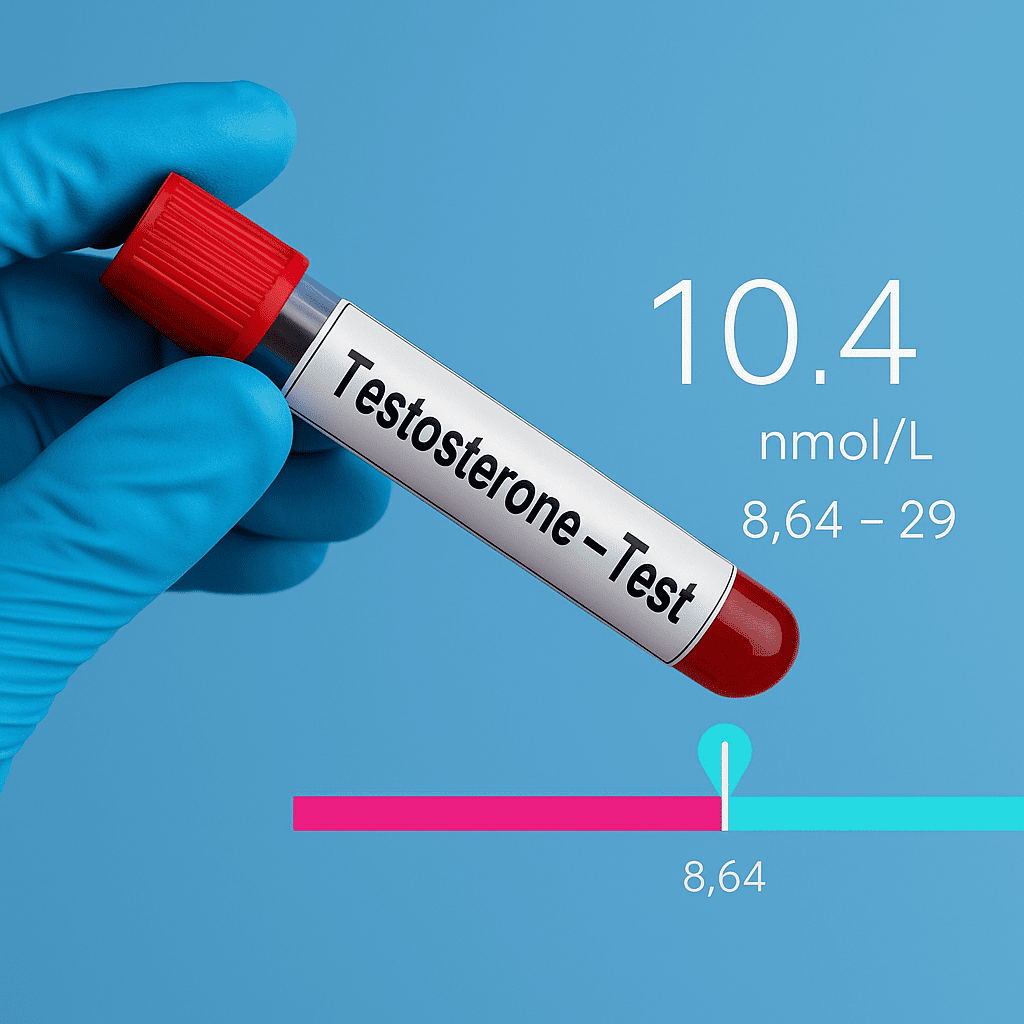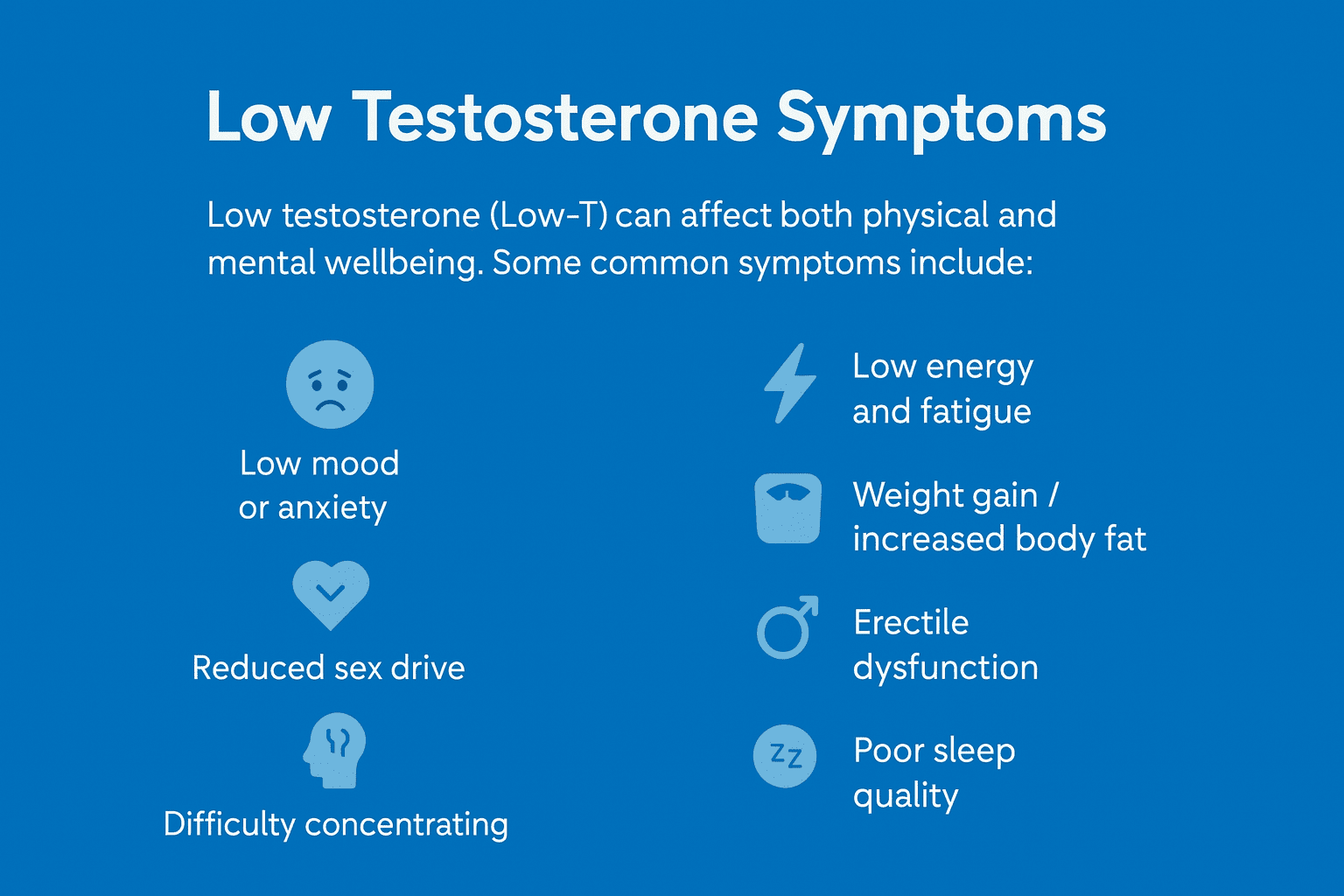Private Testosterone Blood Test in Glasgow
Are you fighting fatigue, weight gain, loss of libido, loss of muscle mass, and mental fog? This could be a sign that you have low testosterone levels. As men age, their levels of testosterone naturally decline, usually beginning after age 30. At MedAssistant we can help advise what your Testosterone Level is. Our qualified staff will run a comprehensive health assessment to check testosterone levels.

Private Testosterone Blood Test
Please note we only provide your levels, we can’t offer any treatment or advice.
Check Your Hormone Levels
Quick and accurate blood testing to measure testosterone levels and support your overall health.
Understand Symptoms
Helpful for men experiencing fatigue, low mood, reduced muscle mass, or changes in energy.
Fast, Discreet Results
Central Glasgow clinic with results normally within 48 hours
Trusted & Confidential
Your sample is analysed by an accredited UK laboratory ensuring accurate results
Testosterone Blood Test
Results normally within 48 hours
£55
Take Control of Your Healthcare Today!
Book your private testosterone blood test in Glasgow for just £55 and get fast, accurate results within 48 hours. No treatment, just clear answers about your hormone levels.
Trusted Excellence
Why choose MedAssistant to check your testosterone levels?
Choosing MedAssistant means choosing confidentiality, accuracy, and convenience. We provide clear, reliable testosterone results within 48 hours, helping you better understand your health without long NHS waiting times.
Same-Day & Next-Day Appointments
We know health concerns can’t wait. That’s why we often have same-day appointments available in Glasgow.
Experienced UK-Trained Professionals
Our healthcare staff are fully qualified and registered, with years of experience in both NHS and private healthcare.
Central Glasgow Location
Our clinic is based in the heart of Glasgow city centre, making it easy to visit us. Simply book online and see a doctor at a time that suits you

Frequently Asked Questions
What causes male testosterone deficiency/low T?
Testosterone replacement therapy (TRT) is usually administered by a gel, cream, or injection. It is usually given as a gel or injection for the first two to six months, but it can be continued in these forms if good symptom relief is maintained.
The type and dosage of medication can be adjusted to ensure the patient receives the best low-T treatment tailored to their needs.
PLEASE NOTE WE DON’T OFFER ANY TREATMENTS, ONLY ADVISE YOUR TESTOSTERONE LEVEL
What is a testosterone blood test?
A testosterone blood test measures the level of testosterone in your blood. It can help identify whether your hormone levels are within the normal range and provide insight into symptoms such as fatigue, low mood, or reduced muscle mass.
Who should consider a testosterone blood test?
This test is useful for men and women who are experiencing symptoms such as low energy, decreased sex drive, erectile dysfunction, difficulty building muscle, or unexplained mood changes.
Do I need to fast before my testosterone blood test?
In most cases, fasting is not required. However, testosterone levels can naturally fluctuate throughout the day, which is why morning blood samples are often recommended for the most accurate results.
Where is the test carried out?
Your blood sample is taken at our central Glasgow clinic by a trained healthcare professional. It is then analysed in an accredited UK laboratory for accuracy and reliability.
Does MedAssistant provide testosterone treatment?
No, we do not prescribe or provide testosterone replacement therapy. We specialise in testing only, ensuring you receive clear, professional results to share with your GP or a specialist if further treatment is needed.
Where is your clinic located?
We’re based in central Glasgow, easy to reach by public transport and with parking nearby. You’ll see the exact address and map when booking.
Frequently Asked Questions
What is FAQ?
Lorem ipsum dolor sit amet, consectetur adipiscing elit, sed do eiusmod tempor incididunt ut labore et dolore magna aliqua. Ut enim ad minim veniam, quis nostrud exercitation ullamco laboris nisi ut aliquip ex ea commodo consequat.
What is FAQ?
Lorem ipsum dolor sit amet, consectetur adipiscing elit, sed do eiusmod tempor incididunt ut labore et dolore magna aliqua. Ut enim ad minim veniam, quis nostrud exercitation ullamco laboris nisi ut aliquip ex ea commodo consequat.
Healthcare on Your Terms – Book Today
Testimonials
What Our Customers Say
Our private clinic is proud to be one of the city’s highest-rated healthcare providers. With countless 5-star reviews, we’re recognised for delivering expert care, reliable results, and a personal service.
So glad i found this place. Professional personal, & proactive suggesting the right tests without pushing for unnecessary ones
Walter
Second visit to MedAssistant. Dealt with same nurse who was super friendly and great at finding my very thin vein for blood. Very professional and quick
Taylor
Another pleasant appointment to have my antihistamine vaccine done . Wouldn’t go anywhere else . Lovely clinic
Margaret
Phone
0141 255 2681
clinic@medassistant.co.uk
Address
117 Saltmarket, Glasgow, G1 5LF
